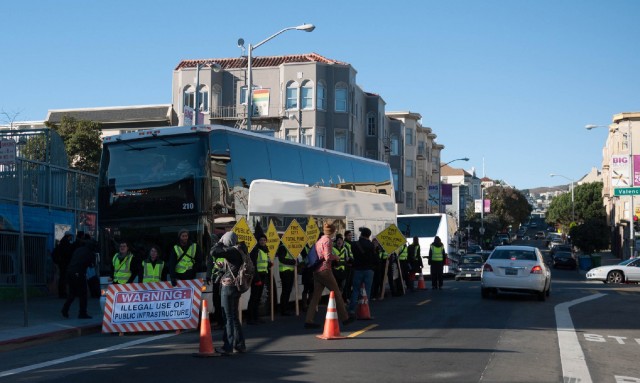
In a legal tech-bus protest, an assortment of San Francisco activists is appealing to the Board of Supervisors to stop the city's plan to continue accommodating private commuter shuttles at public bus stops.
The San Francisco Municipal Transportation Agency in January approved a pilot program to require shuttle operators to get permits and charge them $1 for each stop they make in the city. The unanimous vote came after a series of angry protests against the buses, used by tech giants such as Apple, Google and Facebook to transport employees to work in Silicon Valley.
The fee program would also cover shuttles used for other business, office buildings and UC San Francisco and other local colleges. But it's the high-tech commuters that upset activists, who believe the well-paid workers are responsible for driving up rents and displacing longtime residents.
"I have seen the rent listings along my street skyrocket. I've seen my neighbors have to pack up and move," said one of the appellants, Sara Shortt. She's executive director of the Housing Rights Committee of San Francisco and has lived on Valencia Street at 22nd Street for 16 years. The other appellants are the Harvey Milk LGBT Democratic Club, the Service Employees International Union Local 1021 and the San Francisco League of Pissed-Off Voters.
The crux of their argument is that the SFMTA board should have put the plan through a full environmental impact review under the California Environmental Quality Act. And that review, they argue, should consider not only air pollution but also the displacement of people and housing, particularly in low-income and minority communities.
"There was no real serious cost-benefit analysis,” Shortt said. “The city has the responsibility to do that kind of due diligence before giving away the store as they have.”